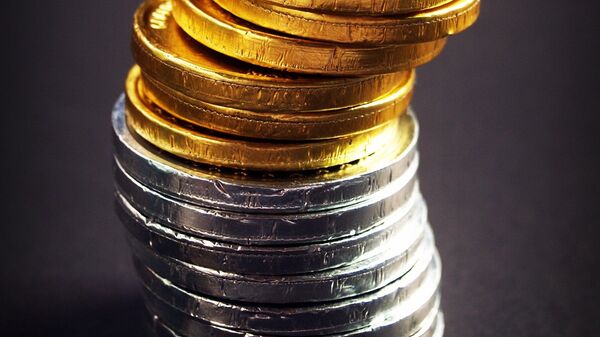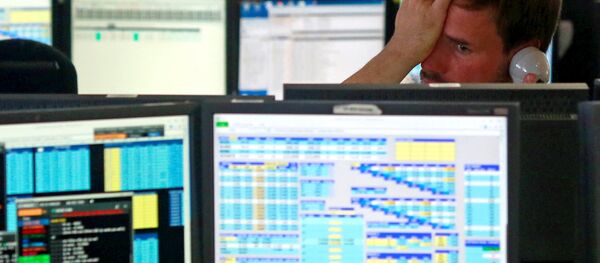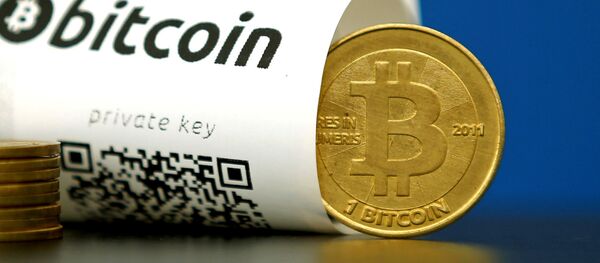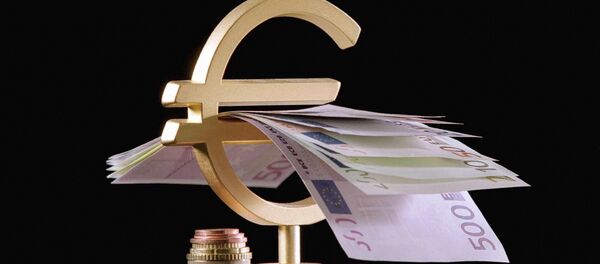Kristian Rouz – With the current 10-year business cycle ending in the US, and economic growth in other major economies throughout the world being persistently slow, there is a mounting concern in international markets regarding what would happen in the event that the next major global recession is just months away.
Most major economies are heavily reliant on US Treasury notes and gold as their main hedge against possible economic shocks, and also as their primary tools for forming and maintaining their international reserves. The reliance on US bonds outside of North America is unprecedentedly high because of the lower volatility in the US economy in recent years. For comparison's sake, risk is far greater than that in the Eurozone and Japan, not to mention emerging markets. Additionally, the ongoing tightening of US Fed monetary policies provides higher yields to those who invest their money in Treasuries.
Higher bond yields, however, mean a lower bond face value, and the Trump administration’s fiscal stimulus plan is poised to further impair the value of US bonds.
Another problem is that there is insufficient supply of traditional safe havens in the global market, with fiscal austerity in Europe, and fiscal neutrality dominating the minds of US policymakers, having produced a decline in government bond issuance in advanced economies.
The next big international crisis is more likely to come from the emerging markets than develop within the advanced economies, mainly due to the higher stability and more sophisticated structure of debt markets in the latter. The developing economies, aside from being excessively reliant on increasingly volatile and unavailable foreign haven assets, also lack internal safety. The structures of their debt markets are still largely underdeveloped, while the debt burdens they carry are much higher than ten years ago.
Mainland China provides a prominent example of accelerated debt accumulation in the past several years, especially at the level of local governments and state-controlled enterprises. WhileBeijing’s wealth is still largely invested in US dollars and Treasuries, those are also the main tools of mainland China’s borrowing, due to an insufficiency of the domestic borrowing resources.
Similar patterns are featured across most other emerging markets.
“The genuine safe-haven assets such as US Treasuries, German bunds, and British gilts have become increasingly rare and are in short supply” because the financial systems of emerging markets lag behind the broader economic expansion, Stephen Jen, an investment strategist, formerly of Morgan Stanley and SLJ Macro Partners LLP, said.
In most emerging markets, investors, in order to hedge against possible economic shocks, are facing a choice of buying either overvalued yet volatile governmental bonds, or buying market-priced, yet even riskier corporate debt.
Therefore, if a global recession hits, most investors will have nowhere to run, especially those in the emerging markets. Massive capital carnage would accompany a cyclical or structural economic crisis if it occurred within the coming several months. The upside to it might be the rising levels of domestic fixed investment in the nations enjoying a windfall of wealth at this point, while real estate in the advanced economies, particularly its luxury segment, is poised to meet even higher demand and an influx of money from overseas.






